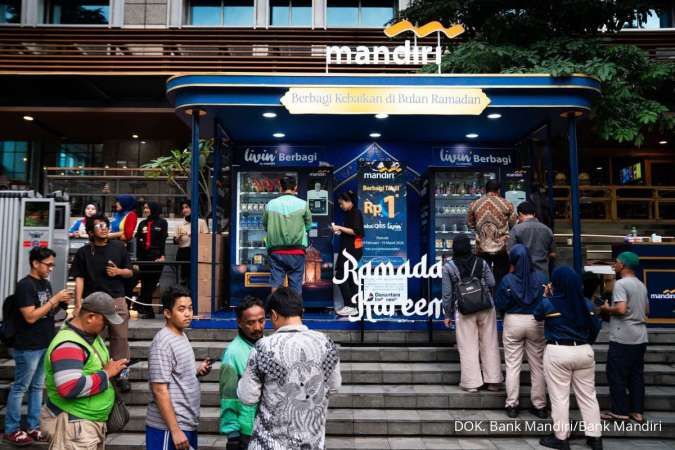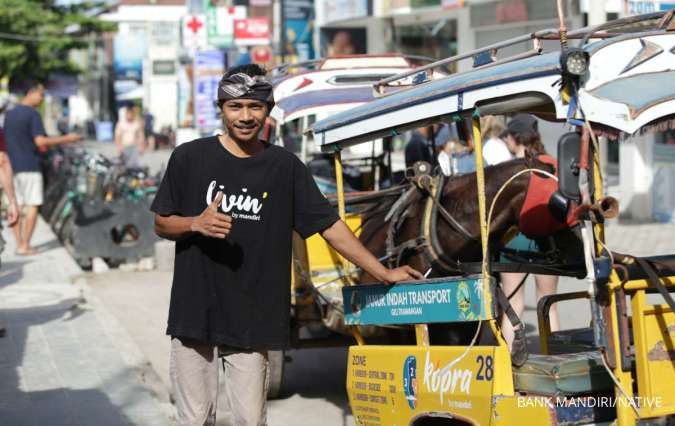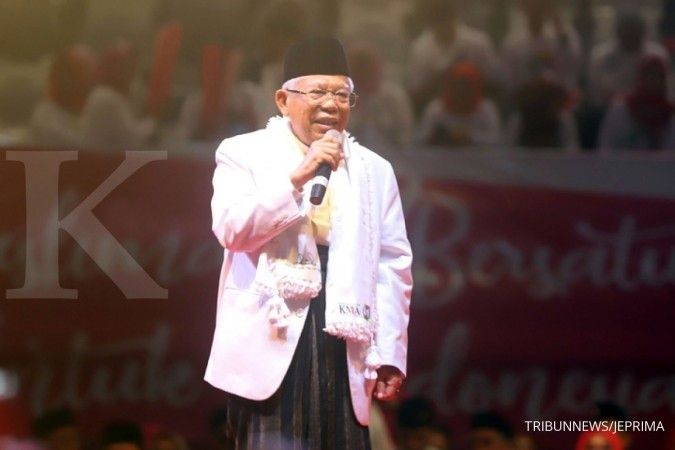KONTAN.CO.ID - JAKARTA. All eyes in the country are now looking to the third presidential election debate on Sunday, the first and only to pit the two vice-presidential candidates, whose backgrounds are as different as night and day, against each other by themselves. Incumbent Joko “Jokowi” Widodo’s running mate Ma’ruf Amin and rival Prabowo Subianto’s Sandiaga Uno are now gearing up for their upcoming face-off on the topics of education, health, human resources, social issues and culture, which is slated for March. 17. The Muslim cleric, who just turned 76 years old on Monday, faces a hefty task to convince voters about his camp’s visions and future programs against Sandiaga, a 49-year-old businessman, who is considered by many to be more appealing for young voters.
Personnel from both campaign teams have been preparing their candidates for the upcoming debate. Jokowi-Ma’ruf campaign team chairman Erick Thohir said that the only special preparation Ma’ruf has undertaken was to ensure that he would be able to adapt his answers to the debate format. "In the debate answers will have to be only one to three minutes long, unlike in a speech," Erick said. "So the main thing is to get him comfortable with the format.” The third debate's topics would play to Ma'ruf's strengths as a leader of moderate Muslim organizations and an expert in sharia-based economics, who also has experience sitting as a House of Representatives member, Erick said. Besides having Islamic credentials, including as a senior official in the nation’s largest Muslim organization Nahdlatul Ulama (NU) and a leader of pesantren (Islamic boarding schools), Ma’ruf had a stint as a lawmaker for the National Awakening Party (PKB) from 1999 to 2004. His rival Sandiaga, on the other hand, is a businessman-turned-politician who had served as Jakarta's deputy governor for roughly a year beginning in 2017 before he gave up his seat and entered the national election. Erick acknowledged the possibility of unfavorable comparisons being raised between Ma’ruf’s age and Sandiaga's perceived vigor, but he said the elder's campaign team did not want to make any drastic alterations to his image. "We do not want to change his profile; it is what it is," he said. "It is important for the people to have the leader they choose for the next five years to have a consistent character, not one manufactured just for the campaign." Speaking about the topics in the third debate, analysts predicted that issues surrounding human resources would come up between the two candidates, especially since labor and unemployment were among the key issues for the Prabowo-Sandiaga ticket. The opposition has often criticized the lack of employment opportunities for Indonesia’s labor force, as well as the presence of foreign workers in the country, with Prabowo and Sandiaga promising they would open as many opportunities as possible for Indonesians to get jobs. “[Sandiaga] will indeed address how to create more employment opportunities,” Prabowo-Sandiaga campaign team spokesman Andre Rosiade told The Jakarta Post. Another issue that would be brought up during Sunday’s face-off was the Health Care and Social Security Agency (BPJS Kesehatan) deficit. This week, Sandiaga was to participate in debate simulations and workshops with a team of experts to sharpen his knowledge of all the topics, Andre said.
Jokowi recently stepped up his campaign promises on social welfare and labor issues, as he planned to roll out some new cards, including an affordable staple foods card and a pre-employment card, which can be used by unemployed people or workers who want to undergo vocational training. Af Maftuchan from the Center of Welfare Studies said he expected Ma’ruf and Sandiaga to propose concrete solutions to existing problems instead of merely presenting the government’s achievements or criticizing the situation. He said Ma’ruf would perhaps show more skill in addressing social issues, such as poverty education, welfare and education, with his background, while Sandiaga as a businessman had knowledge about employment. “However, the two did not yet have much experience in the context of translating ideas into policies, so that’s the challenge,” he said. “I suppose there will be many surprises in this debate.”



